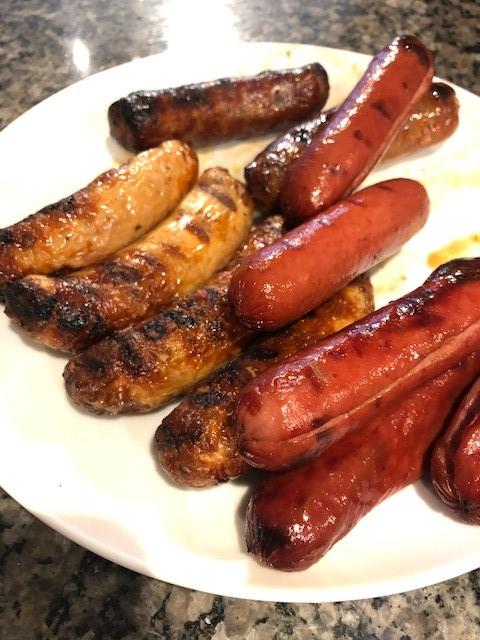
This post is the continuation of a multi-part article about protein. If you missed part one, be sure to check it out here.
What are good sources of protein?
“I’ve heard quinoa, nuts, and beans are all examples of good non-meat sources of protein, is this true?”
It depends on what you consider a “good source of protein.” For a food to be labeled “high” in a macronutrient or vitamin/mineral, it must contain at least 20% of the RDA of said nutrient, and it can be labeled a “good source” at 10-19% of RDA. As you learned in my previous post, the RDA for protein is still very low (.8g per kg of body weight) which is usually expressed as 50-60 grams. Therefore a food can legally be called “high” in protein with as little as 10g and a good source with as little as 5g. If you are a relatively light and sedentary person, this might not be an issue, but if you are a larger, more active individual, these numbers are in no way “high”.
And then we run into another issue. Many people will see something labeled high protein, or hear that the above foods are good sources of protein, and assume that they are “healthy”, which leads them to think that they are good diet foods. Unfortunately this is where people make the biggest mistakes with their diets. Let's look closer at the three commonly cited “high protein foods.”
Quinoa: 1 cup cooked: 222 calories, 8.1g protein, 39.4g carbs, 3.6g fat (14.6% calories from protein)
Nuts: Different kinds of nuts have slightly different nutritional profiles, almonds are one of the highest in protein so here are the facts on almonds: 1 ounce: 160 calories, 6g protein, 6g carbs, 14g fat (15% calories from protein).
Beans: Again like nuts, there are tons of varieties of beans, lets look at black beans which are one of the highest in protein: 1 cup cooked: 227 calories, 15g protein, 39.5g carbs, 1g fat (26.4 calories from protein).
All these above foods are packed with vitamins, minerals, and fiber, hence why they are all considered healthy foods. However, if you are eating these mainly for the protein content, you must be aware that you’re getting a heck of a lot more carbs or fat calories from them than you are protein. For quinoa and beans, this usually isn't much of a problem because they are very filling foods, but one ounce of nuts can be eaten in a blink of an eye, and it's way too easy for one serving of nuts to quickly turn into three or five, hence why I always preach caution when eating them if you are watching your weight.
“Got it. So what are my best options for foods with a higher percentage of calories coming from protein?”
The easy answer here is all lean meats. Chicken breast, lean cuts of pork, steak, bison, elk, etc., and nearly all fish and shellfish outside of salmon are almost entirely protein and very little fat. There are is a lot more variance with meat simply because different cuts will have different amounts of fat, but for the most part, nearly all meats clock in at roughly 22-30g of protein per 4 oz serving.
For foods like chicken breast and tilapia, there are a measly 0-2g of fat along with the protein, but for fatty meats like ground chuck the fat can be 25g plus.
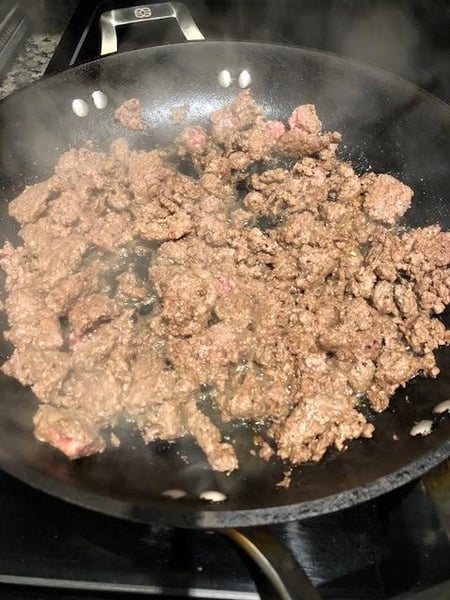
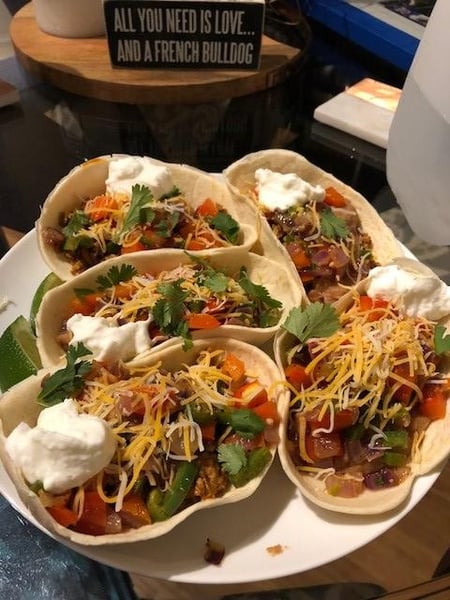
This is where paying attention to nutrition labels comes in handy and doing a little bit of research before buying your fresh cuts of meats will be helpful. For all you red meat loves, bison is an amazing substitute for beef, in that it not only contains more micronutrients but also far less fat (often times only about 4g per 4 oz serving, compared to closer to 8 for even relatively lean cuts of beef). That being said, even a VERY fatty cut of meat with 25g protein and 25g fat per 4 oz (325 calories) will have a higher protein ratio (30.7%) than the foods listed in the previous section.
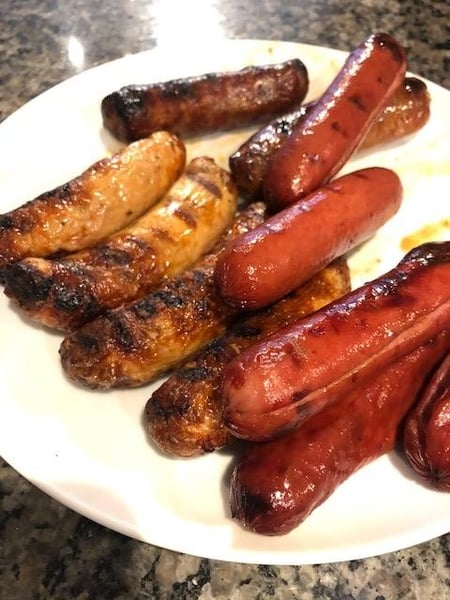
Eggs and dairy are both also decent options for protein, but there is a pretty big variance here as well.
One whole large egg is 6g protein and 5g fat (70 total calories, (42.8% from protein), whereas one egg white is basically all protein (17 calories, 4g protein, 0.1g fat). However nearly all the nutrition in an egg comes from the yolk, so I advise eating at least one whole one along with your whites if you are in diet mode.
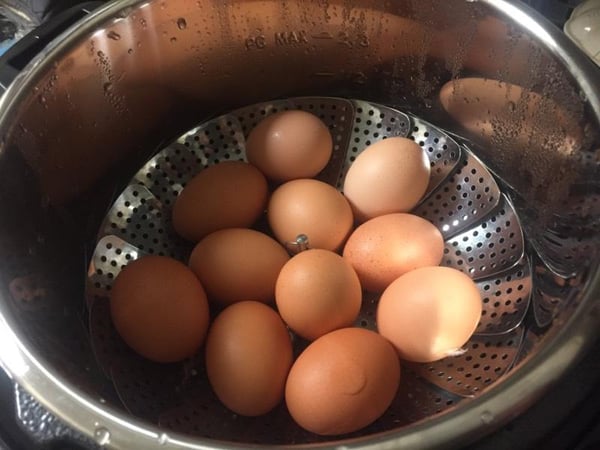
As for dairy, you will will also have a pretty large variance of protein ratio based on if you opt for full fat, low fat, or zero fat products. By ounce, cheese usually contains about 6-8g of protein and 6-10g of fat, so compared to eggs they are about twice as fatty, but compared to the previously listed foods they have a decently better protein ratio.
For a cup of milk, there are about 8 grams of protein and 12g of carbs. Skim milk has 0-0.5g fat, 2% milk has 5g fat, and whole milk has 8g of fat. Similar to eggs, a lot of the vitamins and minerals in milk (and all of the Vitamin D) are found in the fat, so when you remove the fat you are reducing the calories but also the nutritional content of the milk. The same goes for yogurt and Greek yogurt, however zero fat Greek yogurt has much more protein by volume than milk and cheese, so in my opinion it is the superior dairy option for protein. Zero fat Greek yogurt has 134 calories, 24g protein and 9g carbs per cup, clocking in at 76% protein, whereas full fat has a whopping 310 calories, 18g protein, 7g carbs, and 23g fat!
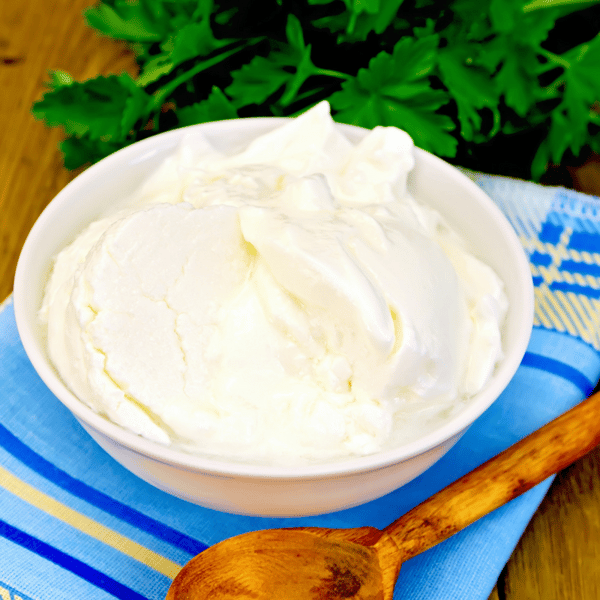
Stay tuned for the final part in this series about protein next month when I provide additional protein options that aren't meat or dairy suitable for vegans. We'll also discuss all of the different types of protein bars and shakes available today including the difference between whey and casein protein and which protein powders could be a good fit for you.
Let me know if you have any questions about protein that I can also answer next month by posting them in the comments.
If you'd like help learning how to perfectly cook protein, The Chopping Block offers several hands-on cooking classes to get you comfortable cooking whatever variety of protein you prefer:
- Beef on the Grill Monday, September 17 6:30pm Lincoln Square
- Meat 101 Tuesday, September 25 6:30pm Merchandise Mart
- Seafood 101 Saturday, September 8 10am Lincoln Square
- Seafood on the Grill Wednesday, September 19 6:30pm Lincoln Square
- Shellfish on the Grill Saturday, September 15 6pm Lincoln Square
- Chicken 101 Sunday, September 16 11am Merchandise Mart

